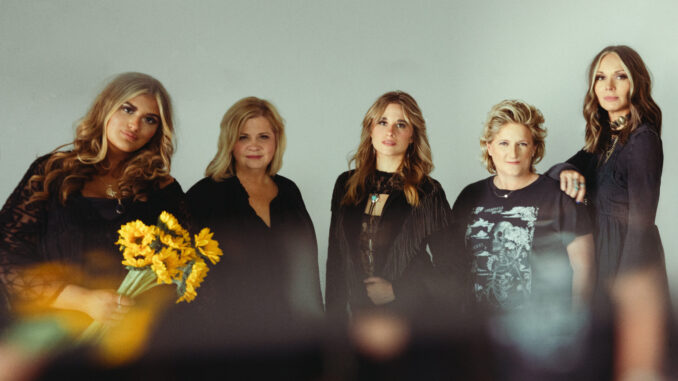
Bluegrass is a genre that has expanded to fit the ambitions of its practitioners in recent years. We’ve looked at Bela Fleck’s experiments with it in previous columns, but has stretched genre to breaking point with a new group. Mason Via, on the other hand, has rediscovered his Bluegrass roots after departing Old Crow Medicine Show. Sister Sadie continues to stretch the genre towards Mainstream Country with an album which revisits the genre’s 90s glory days. We finish with a reissue of one of the core texts of Bluegrass, J.D. Crowe and the New South, an album which is essential listening for anyone who lives Bluegrass, but also for doubters. If you can remain unmoved by an album filled with this much infectious joy, then you have my sympathy.
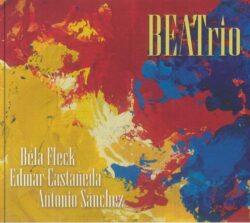 Béla Fleck & Edmar Castañeda & Antonio Sánchez are BEATrio. They have been hailed in the Jazz press as revolutionary. The banjo-harp-drums lineup could be seen as a novelty, but they turn it into a Latin Jazz wonder. There is barely a trace of Bluegrass here, despite the Jazz world seeing Fleck as a representative of that world beaming into theirs.
Béla Fleck & Edmar Castañeda & Antonio Sánchez are BEATrio. They have been hailed in the Jazz press as revolutionary. The banjo-harp-drums lineup could be seen as a novelty, but they turn it into a Latin Jazz wonder. There is barely a trace of Bluegrass here, despite the Jazz world seeing Fleck as a representative of that world beaming into theirs.
Fleck says: “This project kind of reminds me of the early days of the Flecktones, when audiences would go, ‘How is this supposed to work?‘” It will be a shame if fans of his more traditional work pass this by, as it is brilliant. It isn’t Bluegrass, but it is another of Fleck’s unique settings for his instrument, which make categories irrelevant in the face of great music.
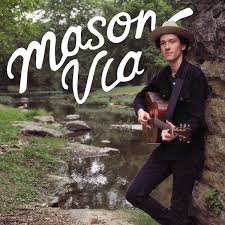 Mason Via has been working on this collection of songs for some years. He has made a “first statement since leaving Old Crow Medicine Show to pursue my own music. I am returning to my roots of bluegrass and shaking it up by bringing some progressive new-grass music to the genre” Via suggests that his ambitions for the album shifted towards material he did not expect to be bluegrass songs. “That was the fun part in the studio—figuring out how to make a country or rock and roll song work with acoustic instruments.”
Mason Via has been working on this collection of songs for some years. He has made a “first statement since leaving Old Crow Medicine Show to pursue my own music. I am returning to my roots of bluegrass and shaking it up by bringing some progressive new-grass music to the genre” Via suggests that his ambitions for the album shifted towards material he did not expect to be bluegrass songs. “That was the fun part in the studio—figuring out how to make a country or rock and roll song work with acoustic instruments.”
Self-titling an album often suggests that it is a line in the sand, setting intentions about an artist’s music. While there is a flavour of his previous band, Via has brought his Bluegrass influences to every song on this album, starting with ‘Wide Open’ and it’s Dobro solo, and choppy Mandolin rhythm through ‘Fireball’ which is a country rock song remade in Bluegrass, to the closing ‘Mountain Lullaby’ a duet with Lonesome River Band’s Ronnie Bowman. An excellent solo debut which suggests greatness is just around the corner.
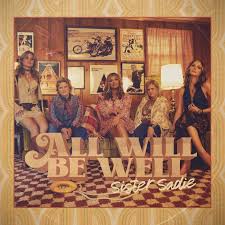 Deanie Richardson of Sister Sadie says, “We didn’t go into record a bluegrass meets 90’s country record.” With recent albums edging them towards the top of the Bluegrass tree, ‘All Will Be Well.’ ‘Winnebago’ starts the album with a midtempo tune, before ‘I Wish It Would Rain’ raises the pace with electric guitar, mandolin and fiddle fighting for space. The 90s country feel lands with ‘First Time Liar’, which has a growling guitar, Richardson’s fiddle, and pedal steel, combining on a tune which is straight out of 1994. The album continues at that level of quality to bring one of the best Bluegrass albums of 2025, and in ‘Let The Circle Be Broken’, the song of the year so far.
Deanie Richardson of Sister Sadie says, “We didn’t go into record a bluegrass meets 90’s country record.” With recent albums edging them towards the top of the Bluegrass tree, ‘All Will Be Well.’ ‘Winnebago’ starts the album with a midtempo tune, before ‘I Wish It Would Rain’ raises the pace with electric guitar, mandolin and fiddle fighting for space. The 90s country feel lands with ‘First Time Liar’, which has a growling guitar, Richardson’s fiddle, and pedal steel, combining on a tune which is straight out of 1994. The album continues at that level of quality to bring one of the best Bluegrass albums of 2025, and in ‘Let The Circle Be Broken’, the song of the year so far.
“This record takes you on a musical/emotional journey,” Richardson tells us. That journey pulls in Steve Earle, who offers a harmony vocal on ‘I Wish It Would Rain,’ pedal steel player Russ Pahl and keyboard player Catherine Marx. Guitarist Dani Flowers, who co-wrote more than half of the album’s songs, says. “Each song was carefully selected. Some we poured pieces of our souls into, others we’ve loved for years and years, and we each deeply relate to every song.” It shows.
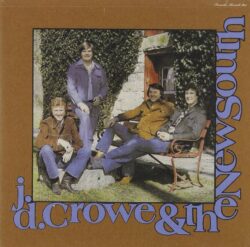 J.D. Crowe and the New South, is reissued from 1975 and as the press rightly suggests “boasts probably the greatest line-up of talent of any American band in any genre: banjoist Crowe, bassist Bob Sloane of the Kentucky Colonels, fiddle and mandolin player Ricky Skaggs, dobroist Jerry Douglas, and guitarist/vocalist Tony Rice.” Fifty years later, it is still one of the finest Bluegrass albums ever made. Universally known by its original catalogue number Rounder 44 and selected to the National Recording Registry by the Library of Congress as being “culturally, historically, and/or aesthetically significant,” anyone who hasn’t heard this album needs to pick up this reissue and listen to where much of the progressive Bluegrass and NuGrass played today originated. ‘You Are What I Am’ contains some of the finest performances of this stellar band. Other songs that form the core of Bluegrass include ‘Some Old Day’ and ‘Sally Goodin.’
J.D. Crowe and the New South, is reissued from 1975 and as the press rightly suggests “boasts probably the greatest line-up of talent of any American band in any genre: banjoist Crowe, bassist Bob Sloane of the Kentucky Colonels, fiddle and mandolin player Ricky Skaggs, dobroist Jerry Douglas, and guitarist/vocalist Tony Rice.” Fifty years later, it is still one of the finest Bluegrass albums ever made. Universally known by its original catalogue number Rounder 44 and selected to the National Recording Registry by the Library of Congress as being “culturally, historically, and/or aesthetically significant,” anyone who hasn’t heard this album needs to pick up this reissue and listen to where much of the progressive Bluegrass and NuGrass played today originated. ‘You Are What I Am’ contains some of the finest performances of this stellar band. Other songs that form the core of Bluegrass include ‘Some Old Day’ and ‘Sally Goodin.’
The reissue includes two bonus tracks ‘Why Don’t You Tell Me So’ and ‘Cryin’ Holy’, which features Emmylou Harris. Both are good enough to make us wonder how they missed the cut in 1975.


